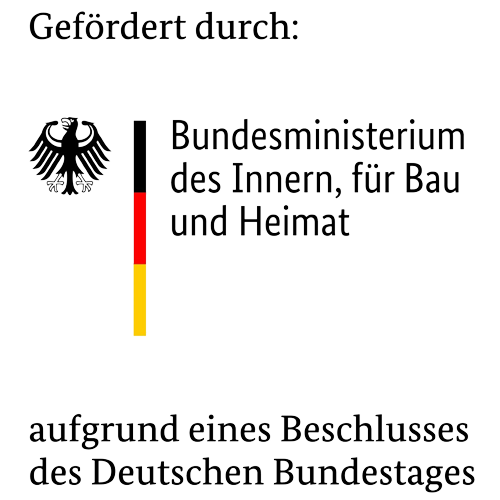
ABOUT THE FORUM
A "Europe of the regions" was the idea of the European Commission under its former president Jacques Delors: the aim was to promote the regions in the EU member states and support them in their regional autonomy. As part of this process of making the regions real actors in European politics, changes were made in the structural funding arrangements of the European Union. This has created new opportunities for regions to receive funding and participate in the EU policy process.
Within many EU states, the regions have been given more competences since the 1970s. The process of European integration, combined with decentralisation in many Member States, has given the regions tools for a more active role in the European Union. In order to increase their influence in Brussels, many regions have established networks.
In this context, the Federal Union of European Nationalities (FUEN) has launched the "Forum of European Minority Regions" - as a place for cooperation and networking. The goals: to increase the political weight of the individual regions and to exert a stronger influence on EU policy through a united appearance. In addition, the forum offers a space for exchange and analysis of the status quo with regard to minority rights and learning from best-practice examples.
Regional and minority languages are spoken by about 40 million people in Europe. It is precisely those regions where linguistic or ethnic autochthonous minorities live that strengthen European ties in a special way. Europe's minority regions form bridges between the Member States and play a decisive role in European integration.
Minorities contribute to the economic and social development of these regions. It is therefore no coincidence that some of these regions are among the wealthiest in Europe - South Tyrol, with the highest GDP per capita in Italy, or the Basque Country and Navarre, the richest regions in Spain, are good examples.
Nordic diversity – a formula for economic growth?
FUEN is organising the fifth "Forum of Minority Regions" on 14 and 15 October 2021 in Helsinki/Helsingfors, Finland. This year, the focus is on minorities in the Nordic countries and their economic dimension: "Nordic diversity - a formula for economic growth?" is the guiding question of the forum. After all, border areas with their multilingual populations attract investment and many small and medium-sized enterprises. They are bridge builders between countries and create economic macro-regions. The German-Danish border region and Tornedal in northern Sweden are prime examples of this.
Various panel discussions with high-ranking representatives from politics, business and academia will shed light on the economic added value of linguistic diversity, how the education system helps to preserve it and whether the model of autonomous regions in the Nordic countries could serve as a model for other minority regions. Finally, the Forum will try to answer the question what the EU and the Nordic Council can do to support minorities even better.
We would be happy to have you join us in Helsinki on 14 and 15 October 2021 to learn from and discuss with the best experts in the field!
The Forum will be streamed live on FUEN’s Youtube channel with English interpretation and on the Zoom platform in the floor language and with English interpretation.
Zoom link: https://us02web.zoom.us/j/84887639217?pwd=azBaS1BWaE95VmZ2YnhNOXlsc1Vmdz09
Passcode: 039838
| Until 14.00 | Individual arrival Hanasaari, Hanasaarenranta 5, FI-02100 Espoo, +358 (0)9 435 020 |
| 14.30 – 14.45 | Registration |
| 14.45 – 15.30 | Welcoming words and introduction Gunvor Kronman, CEO, Hanaholmen (video message) MEP Loránt Vincze, FUEN president Sandra Bergqvist, president, Folktinget Thomas Blomqvist, Minister for Nordic Cooperation and Equality Anna-Maja Henriksson, Minister of Justice (video message) |
| 15.30 – 17.00 | Panel discussion: The economic added value of languages in cross-border cooperation – the cases of Finland-Sweden. Key-note speech: Professor in economics, Bengt-Arne Wickström. Professor in economics at the Andrássy university, Budapest and Humboldt university, Berlin. Moderator: Johan Häggman, FUEN Policy Advisor Joakim Strand, Member of Parliament, FinlandGrégory Dalbert, Policy Advisor of the Government of the German-speaking Community, Ostbelgien, Belgium Kjell Skoglund, CEO, Finnish-Swedish chamber of commerce |
| 17.00 – 17.30 | Coffee break |
| 17.30 – 18.45 |
Video message by Bertel Haarder, Chairman of the Nordic Council Panel discussion: Learning your neighbour’s language – promoting diversity through education Moderator: Gösta Toft, FUEN Vice President Gun Oker-Blom, former Head of the Swedish Section of the National Board of EducationPetra Palkio, Board member of the Sweden-Finnish Delegation and Member of the Think Tank V-Akka Anja Peist, Project assistant in the field of German-Danish language cooperation, Region Sønderjylland – Schleswig |
| 19.00 – 21.00 | Dinner at Hanaholmen in co-operation with the city of Espoo With the student choir Lyran |
| 9.00 - 9.30 | Greetings by Agustina Vilaret González, secretary general for University, Research and Language Policy in the Government of the Balearic Islands (Spain) and NPLD chair, The Balearic Islands, Spain |
| 9.30 – 11.00 | Panel discussion: Autonomous regions in the Nordic countries – A model for European minority regions. Moderator: Walter Turnowsky, journalist With presentations by Comments by representatives of |
| 11.00 – 11.30 | Coffee Break |
| 11.30 – 13.00 | Panel discussion: Indigenous people in the Arctic area. Moderator: Professor Tom Moring |
| 13.00– 14.30 | Lunch |
| 14.30-15.30 | Final debate: What can the Nordic Council, the EU, the Council of Europe and the UN do for minorities? Moderator: Christina Gestrin, Secretary General, Folktinget Maria Hokkonen, Head of EU Commission delegation to FinlandJarmo Lainio, Committee of Experts of the European Charter for Regional or Minority Languages, Council of Europe Andor Barabás, President of YEN. |
| 15.30-16.00 | Conclusions by Bahne Bahnsen, FUEN Vice President |
| Until 10.00 | Breakfast in the hotel and individual departure |





